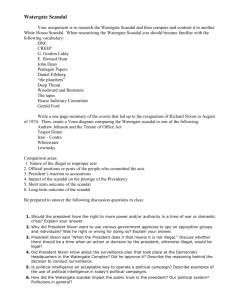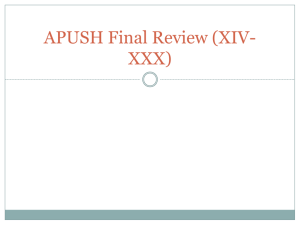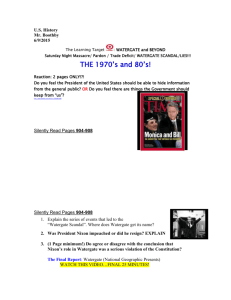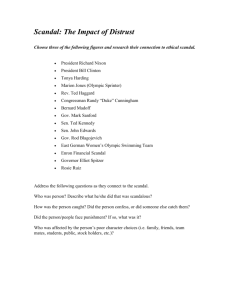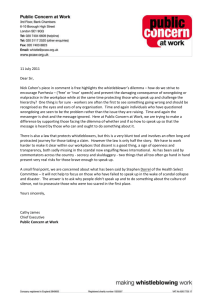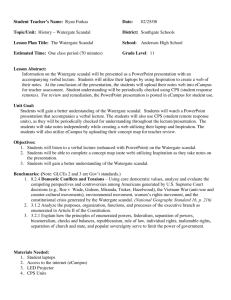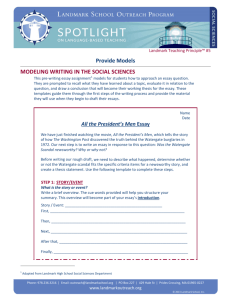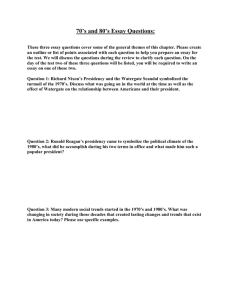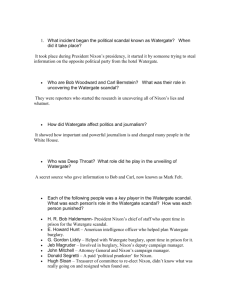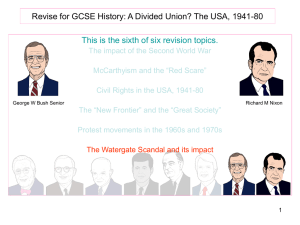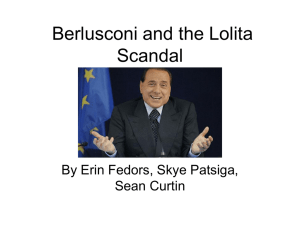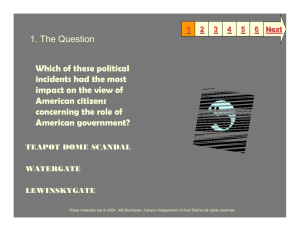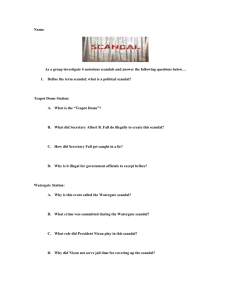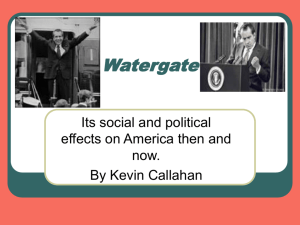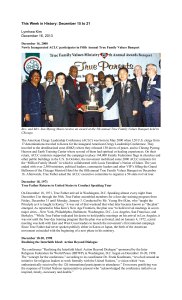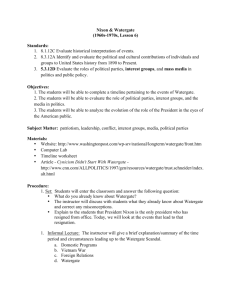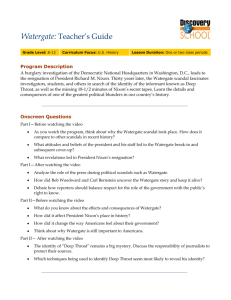brainstorming a topic
advertisement
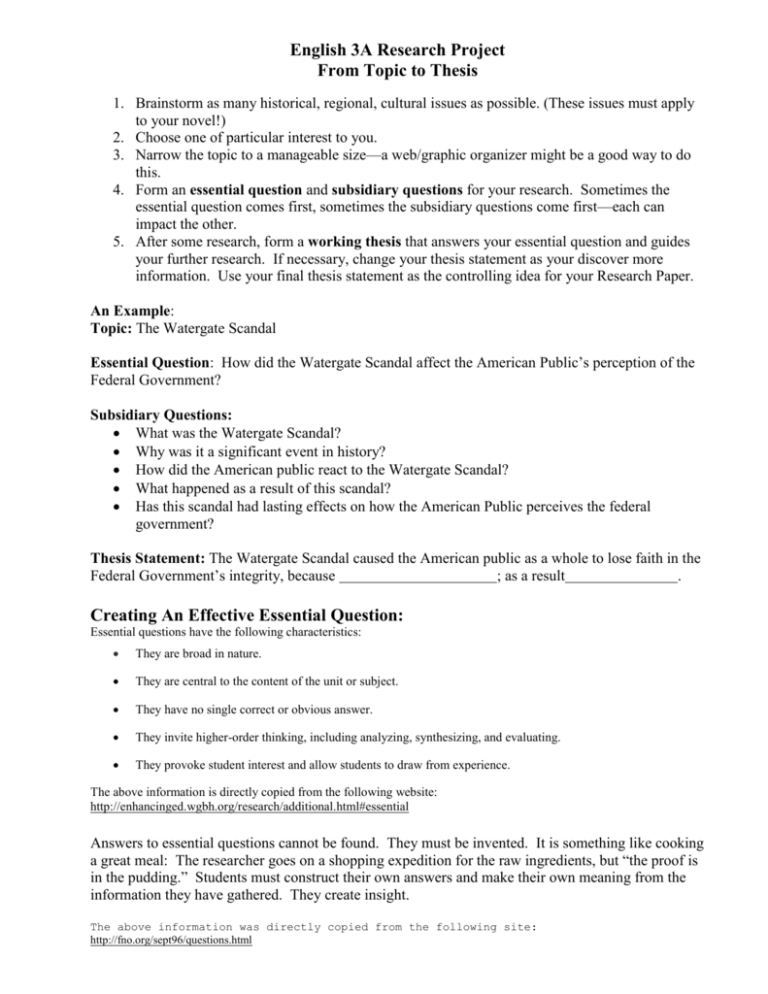
English 3A Research Project From Topic to Thesis 1. Brainstorm as many historical, regional, cultural issues as possible. (These issues must apply to your novel!) 2. Choose one of particular interest to you. 3. Narrow the topic to a manageable size—a web/graphic organizer might be a good way to do this. 4. Form an essential question and subsidiary questions for your research. Sometimes the essential question comes first, sometimes the subsidiary questions come first—each can impact the other. 5. After some research, form a working thesis that answers your essential question and guides your further research. If necessary, change your thesis statement as your discover more information. Use your final thesis statement as the controlling idea for your Research Paper. An Example: Topic: The Watergate Scandal Essential Question: How did the Watergate Scandal affect the American Public’s perception of the Federal Government? Subsidiary Questions: What was the Watergate Scandal? Why was it a significant event in history? How did the American public react to the Watergate Scandal? What happened as a result of this scandal? Has this scandal had lasting effects on how the American Public perceives the federal government? Thesis Statement: The Watergate Scandal caused the American public as a whole to lose faith in the Federal Government’s integrity, because ; as a result . Creating An Effective Essential Question: Essential questions have the following characteristics: They are broad in nature. They are central to the content of the unit or subject. They have no single correct or obvious answer. They invite higher-order thinking, including analyzing, synthesizing, and evaluating. They provoke student interest and allow students to draw from experience. The above information is directly copied from the following website: http://enhancinged.wgbh.org/research/additional.html#essential Answers to essential questions cannot be found. They must be invented. It is something like cooking a great meal: The researcher goes on a shopping expedition for the raw ingredients, but “the proof is in the pudding.” Students must construct their own answers and make their own meaning from the information they have gathered. They create insight. The above information was directly copied from the following site: http://fno.org/sept96/questions.html
